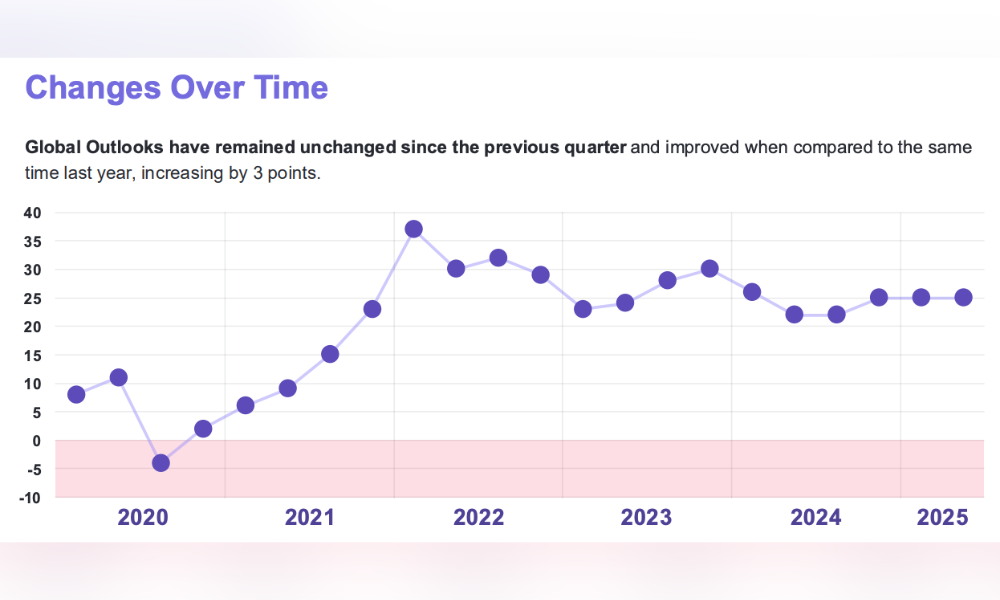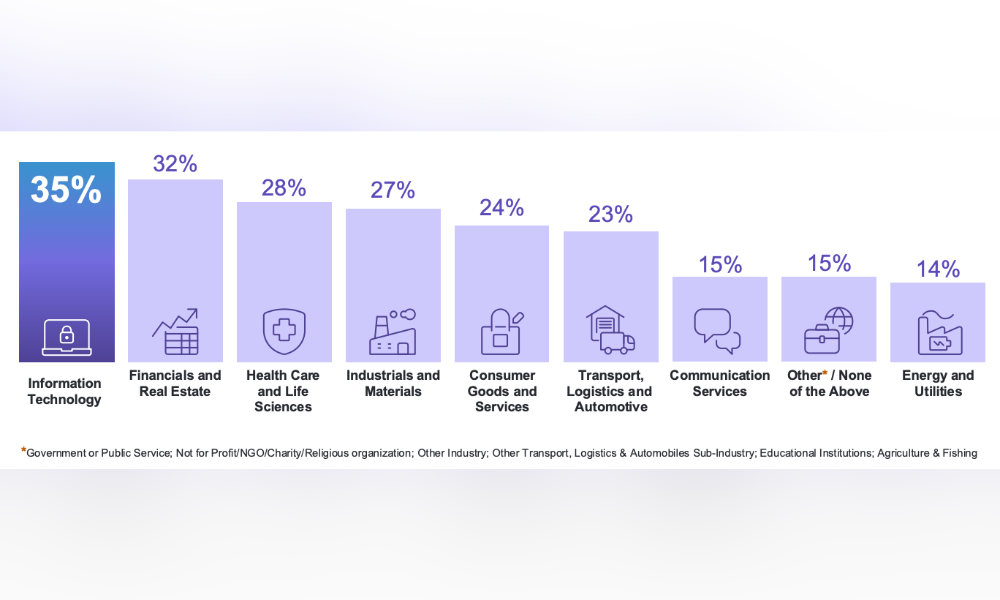
Which countries have strongest outlook for recruitment?

Hiring intentions remained steady globally for the second quarter of 2025 as the world marks its "longest period of stability" since the pandemic, according to the latest ManpowerGroup report.
The survey, released this week, found that 40% of employers are anticipating an increase in hiring, while 42% are reporting no changes when it comes to headcount in the second quarter.
Another 15% said they anticipate a decrease, and three per cent said they are unsure.
Overall, the Global Net Employment Outlook hit 25% for the second quarter, according to the ManpowerGroup poll, which covered nearly 40,000 employers from 41 countries.
"We are pleased to see hiring outlooks holding steady for three consecutive quarters now - the longest period of stability we have seen since before the pandemic," said Jonas Prising, chair and CEO of ManpowerGroup, in a statement.

By region, employers in the Asia-Pacific reported the strongest regional outlook with 30%, followed by the Americas with 29%.
The Europe and Middle East saw the lowest hiring expectations with just 20%, but the report noted that it increased by one point since the first quarter and four points year-over-year.
By market, India saw the strongest hiring intentions with 43%, while the weakest was recorded in Argentina with zero per cent. The most strengthened employment outlook was recorded in Israel with 13%, while the most weakened outlook was reported in Australia and the Netherlands at -5%.
By industry sectors, the strongest hiring sentiment was recorded in Information Technology, with 35%. This is followed by Financials and Real Estate, with 32%.

Company expansion emerged as the main driver for why many organisations are planning to hire more employees, according to the ManpowerGroup report.
"Over 15,800 employers surveyed globally said company expansion is the top reason for staffing increases," the report read.
Around a quarter of the respondents also said their new ventures require new roles (28%) and the specific projects need dedicated staff (24%).
Technology also has an impact on employers' intentions for recruitment, according to the report.
Nearly a quarter of the global respondents (24%) said they plan to hire employees in the next three months because tech advancements in their workplace need more expertise.
On the other hand, 20% of the respondents also said automation has reduced some roles in their organisation, making them anticipate headcount cuts.
The findings reflect the positive and negative effects of the rapid technological advancement in workplaces. While some employers are hiring employees with AI skills, others are cutting roles that could be carried out by AI.
In fact, data from the World Economic Forum earlier this year revealed that 41% of employers plan to downsize their workforce where AI can replicate people's work.
Gartner previously noted that generative AI will "significantly impact jobs and workers," but its impact will vary across organisations.
"HR leaders can work with their partners to set realistic expectations for generative AI's impact on their workforce," Gartner said on its website.
According to Gartner, HR leaders should prepare in the near term by including scenarios around the impact of technology in workforce plans.
"Examine business strategy, and levels of disruption through AI and GenAI for your industry, and for relevant job functions," it said.
HR should also introduce training on GenAI basics as well as information scepticism, in line with recent calls to upskill the workforce in the wake of AI disruption.
"The GenAI basics training should include examples and use cases that reflect the organisation's philosophy on how GenAI should be used, and demonstrate how impacted employees are supported as their roles evolve," Gartner said.